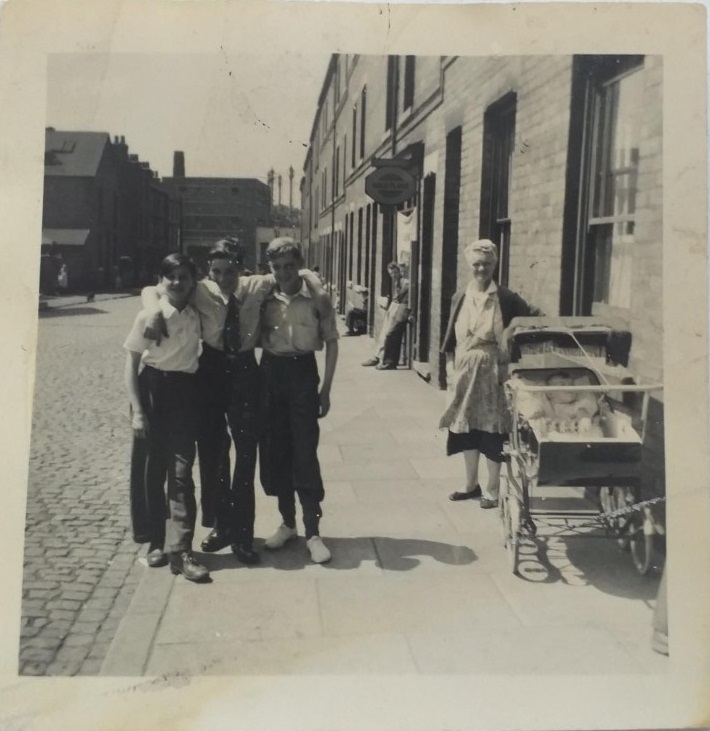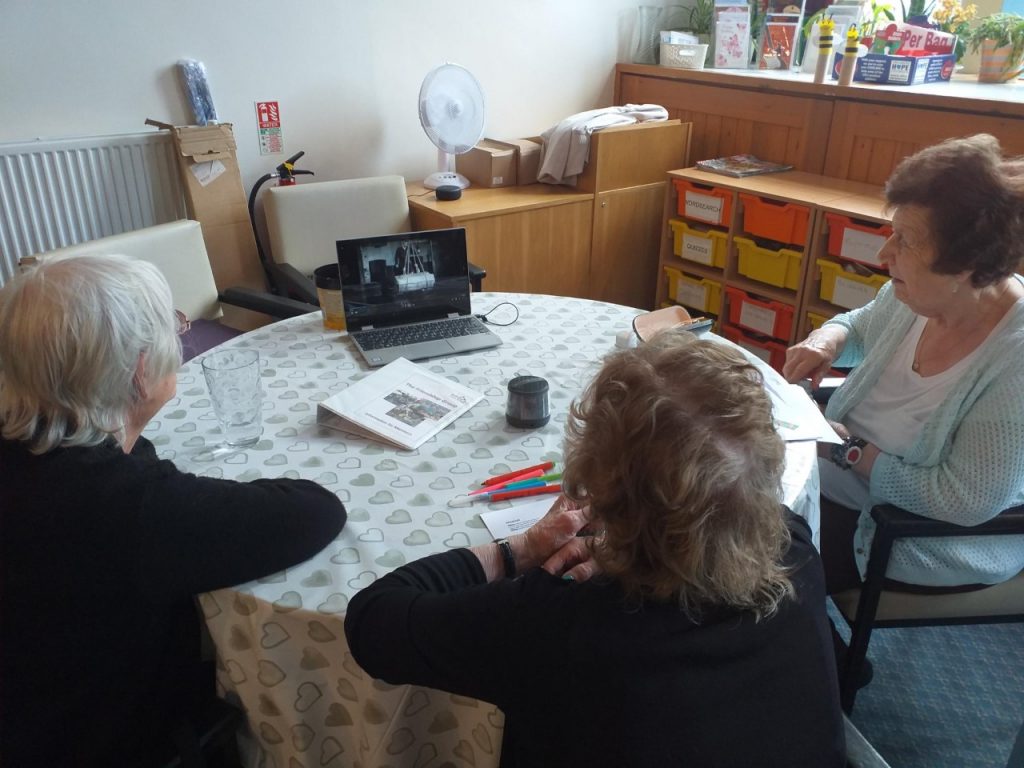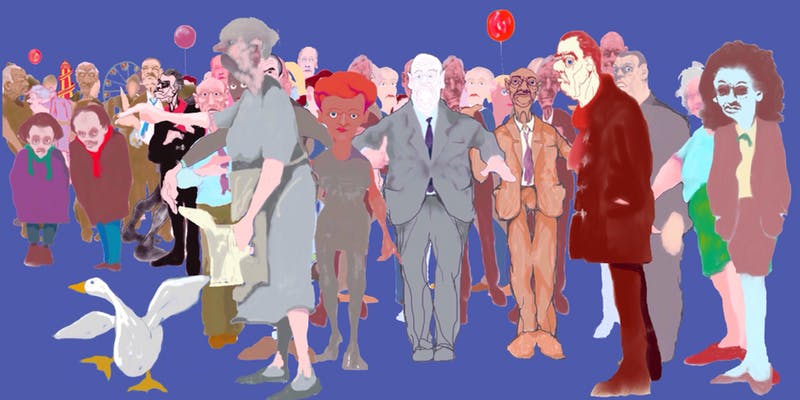
Artwork by Paul Warren.
This is the third of three blogs originally published on the City Arts website for Words for Wisdom, a project which aims to bring older and young people together through literature. During my commission we explored Alan Sillitoe’s Saturday Night and Sunday Morning and uncovered an incredible artist called Paul Warren who illustrated the animated graphics for the project: Cheap Gossip for Retail Later.
Whenever I complete a commission there’s that moment where you sit back and reflect on what went well and what you would do differently. Working with City Arts has taken this to another level, clarifying what it is I’ve been doing all my life: I basically find excuses to talk to people.
Journalism is all about navigating a city through the minds of locals, discovering the weird and wonderful things that people get up to – the woman who sends the Queen a teddy bear every year, the puppeteer who wants to cover the Council House in felt. I’ve met them all over the years. I’ve always believed that my digital projects were a celebration of literary heritage, but really they’re an excuse to collaborate with a broad range of disciplines and people. The Sillitoe Trail explored the enduring relevance of Saturday Night and Sunday Morning through a beatboxer, jazz bands, a historian, memoir, actors, writers and many more. Dawn of the Unread enabled me to promote organisations I strongly believed in – Sparrow’s Nest Anarchist Library, The Nottingham Black Archives, The Women’s Centre, the Bertrand Russell Foundation. For Words of Wisdom I’ve met people I wouldn’t have come into contact with otherwise, some of whom I now consider as friends.
In the 20 sessions we hosted across four venues in Nottingham, we used Sillitoe’s writing to reflect upon our own experiences. Some people were uncomfortable with writing, others were unable to write on account of their physical health – such as Brenda at Radford Care Group, who has such severe tremors she joked ‘imagine what it’s like when I try and eat me dinner’. Instead, they shared their memories verbally. The purpose of these sessions wasn’t to force people to write, rather to express and share ideas – whatever that may entail.
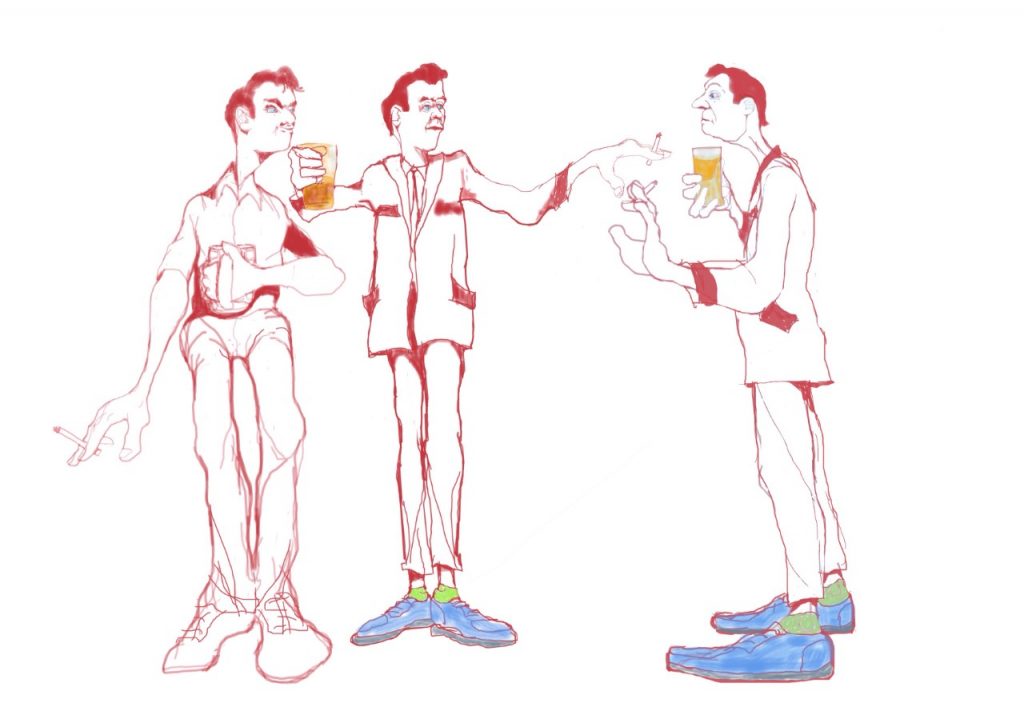
Artwork by Paul Warren
During one session, a participant who had served in the army from 1961-4, said he was more comfortable with drawing than writing. He was very dismissive of his art, but agreed – after a little encouragement – to send over a sketch later that evening. His email would change the entire shape and format of the project. His name is Paul Warren.
Paul’s sketch, drawn on an ipad, was of a group of drunken men. The style is reminiscent of a watercolour due to the texture and brush strokes, with some aspects given more emphasis than others. This created the feeling of the characters being both present and absent. Paul explained that he was influenced by the concept of Impressionism, drawing glimpses of moments rather than the completed pictorial composition. I personally loved his characters long flowing limbs which created a sense of inebriation – you could feel the alcohol running through their limp bodies. It felt like they could collapse at any time. His work reminded me of Paul Waplington, the Nottingham artist who captured the liveliness of people and places through his rhythmic paintings.
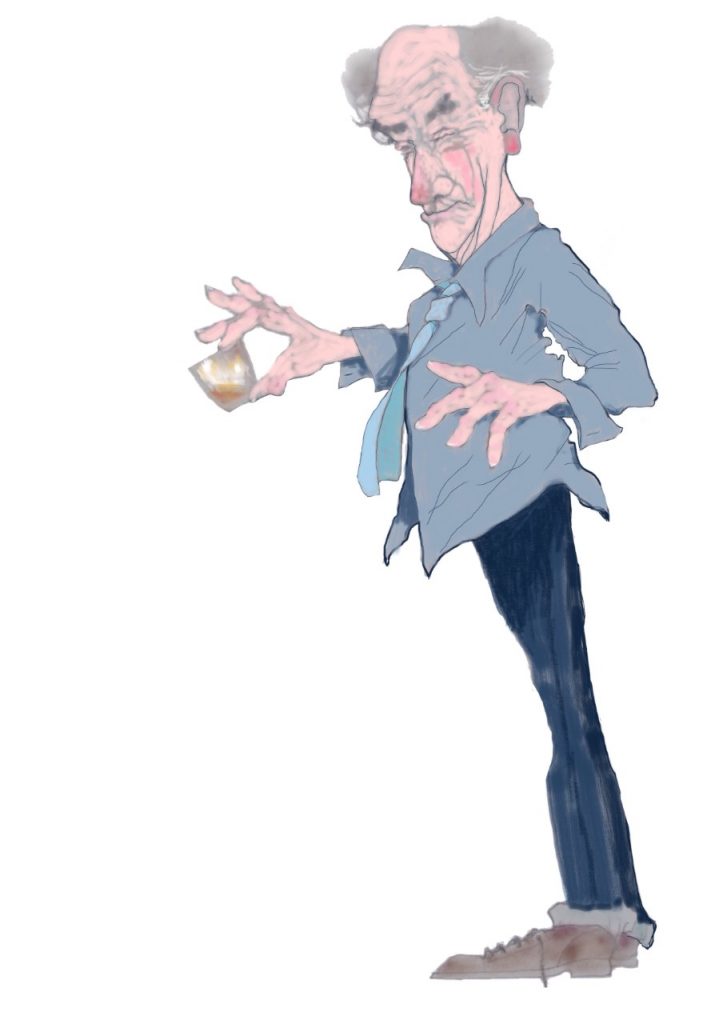
Artwork by Paul Warren
I had originally intended to create a YouTube video for the project output but instead opted for a series of vignettes to be animated by Paul’s artwork. Each one would include a framing quote from Sillitoe, and then an audio of a participant’s story. At first, Paul couldn’t see the value of his work. He felt he had underachieved in terms of an art career, perhaps because his working life had not afforded the time to perfect his craft, but me and Kate Duncan took a different view. He’s an incredible talent, and we wanted him to be the fulcrum of the project. He later gave us access to his dropbox account where we unearthed hundreds of portraits of people.
This is why projects like Words of Wisdom are so important: They allow space for creativity. They place a value on self-expression. They provide validation to hidden talents.
Better late, than never at all…
Words of Wisdom: Choice Gossip for Retail Later, 12 November (6pm-8pm), City Arts, 11-13 Hockley, Nottingham. NG1 1FH
Book tickets from Eventbrite here
You can view the animations here


